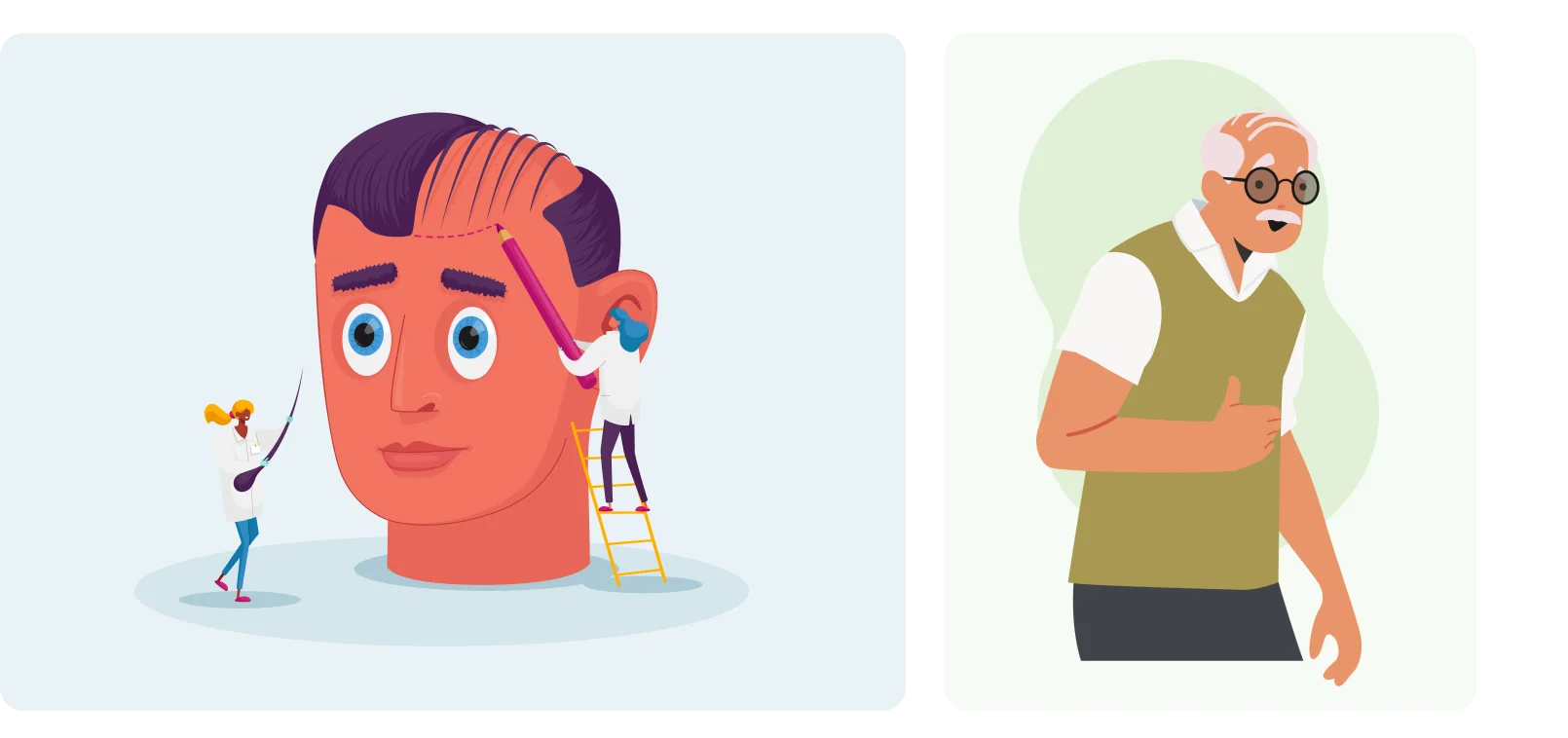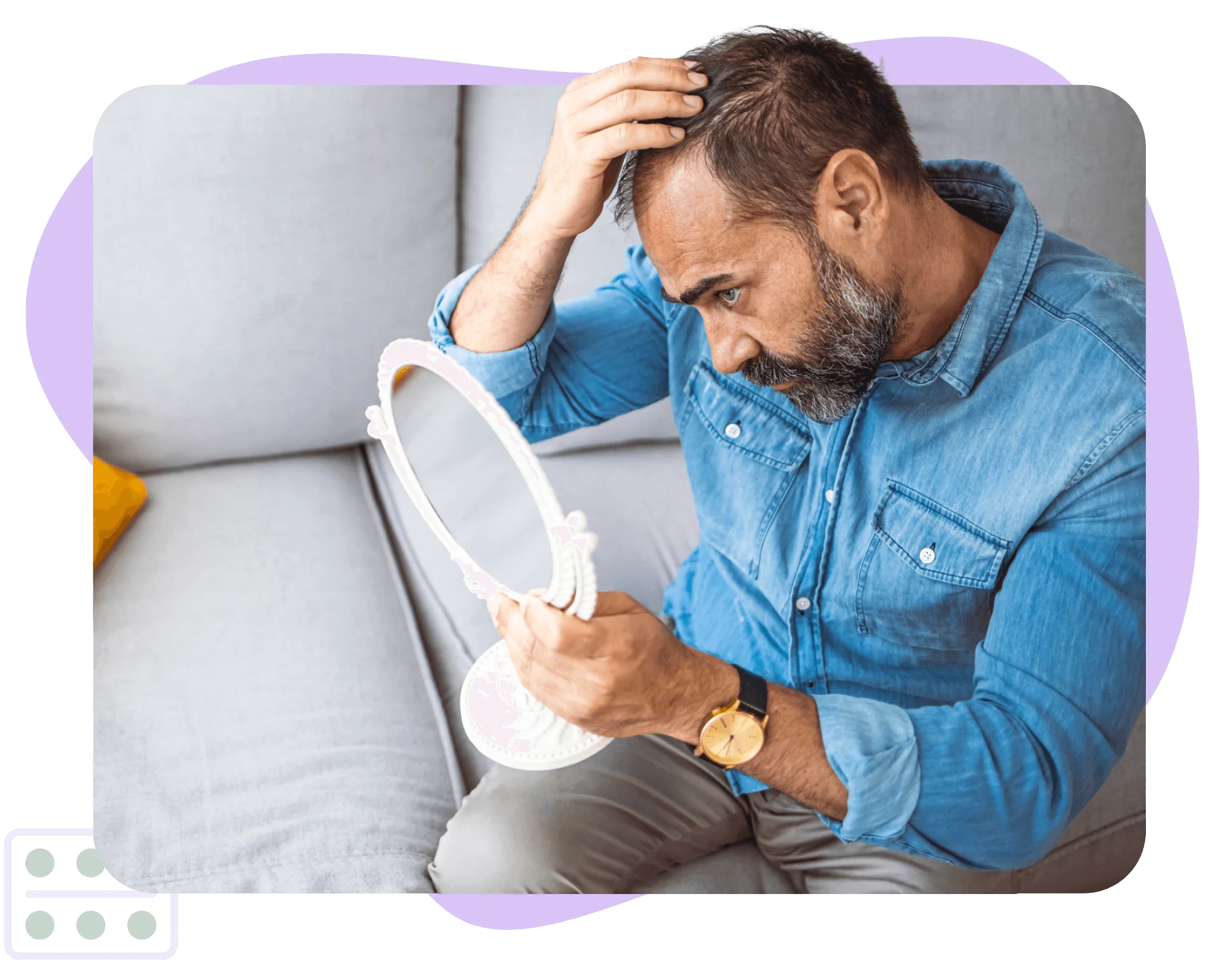Hair loss, also known as alopecia, refers to partial or complete loss of hair from the scalp or other areas of the body where hair normally grows. Whilst hair loss is more commonly associated with men, it can affect anyone regardless of age or gender.

Understanding Hair Loss
Hair loss is a natural part of the hair growth cycle. We typically lose between 50 and 100 hairs from our heads each day as part of normal hair renewal. However, when hair loss exceeds this natural rate or when new hair fails to replace what’s been lost, noticeable thinning or baldness can occur.Causes
Causes of Hair Loss
Hair loss can result from various factors, often working in combination:
Genetic Factors The most common cause is androgenetic alopecia, commonly known as male or female pattern baldness. This hereditary condition affects the hair follicles’ sensitivity to hormones, particularly dihydrotestosterone (DHT).
Hormonal Changes Fluctuations in hormone levels can trigger hair loss during:
- Puberty
- Pregnancy and childbirth
- Menopause
- Thyroid disorders
Medical Conditions Several health conditions can contribute to hair loss:
- Autoimmune diseases (such as alopecia areata)
- Scalp infections (including fungal infections)
- Trichotillomania (compulsive hair pulling)
- Polycystic ovary syndrome (PCOS)
Medications and Treatments Certain drugs can cause temporary or permanent hair loss:
- Chemotherapy drugs
- Anticoagulants (blood thinners)
- Some antidepressants
- High-dose vitamin A supplements
- Medications for arthritis, gout, or high blood pressure
Nutritional Deficiencies Inadequate nutrition can weaken hair follicles:
- Iron deficiency (anaemia)
- Protein deficiency
- Zinc deficiency
- B vitamin deficiencies
Physical and Emotional Stress Both acute and chronic stress can disrupt the hair growth cycle:
- Sudden physical trauma or illness
- Extreme emotional stress
- Rapid weight loss
- Surgery or severe illness
Hair Care Practices Damaging hair treatments and styling can lead to hair loss:
- Tight hairstyles (ponytails, braids, hair extensions)
- Frequent chemical treatments (perming, straightening)
- Excessive heat styling
- Harsh brushing or combing
Symptoms and Signs
Hair loss presents differently depending on its underlying cause. Common signs include:
Gradual Hair Thinning
- Progressive thinning across the scalp, particularly at the crown
- Widening of the hair parting
- Decreased hair density overall
Pattern Baldness
- Receding hairline, typically starting at the temples
- Bald patches developing at the crown
- Complete baldness in advanced cases
Patchy Hair Loss
- Smooth, round bald spots on the scalp or other body areas
- Sudden loss of hair in specific regions
- Possible regrowth in previously affected areas
Excessive Shedding
- Increased hair fall noticed on pillows, in the shower, or on hairbrushes
- Handfuls of hair coming out during washing or styling
- Visible hair accumulation on clothing
Scalp Changes
- Itching, burning, or tenderness of the scalp
- Redness or inflammation
- Scaling or flaking skin
- Changes in scalp texture
When to Seek Medical Advice
Consult a healthcare professional or dermatologist if you experience:
- Sudden or rapid hair loss
- Patchy hair loss accompanied by scalp irritation
- Hair loss following a new medication
- Signs of infection (redness, swelling, pus)
- Hair loss that causes significant distress or affects your quality of life
Early intervention often leads to better outcomes, and many forms of hair loss can be effectively treated when addressed promptly.


























